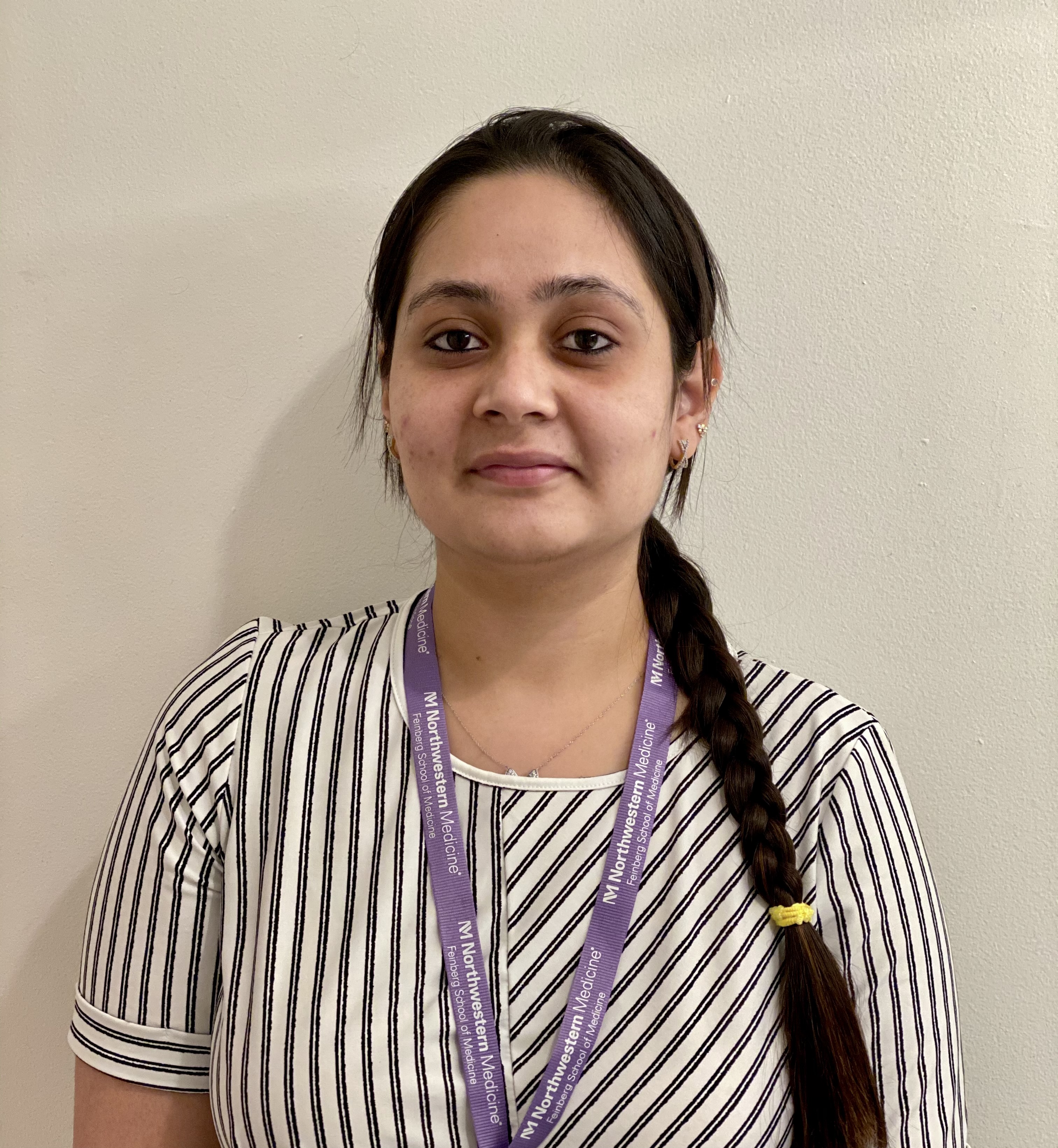CRS Scientist Spotlight on Dr. Azna Zuberi
CRS is really amazing that connects different labs, scientists, trainees, and researchers of Northwestern and give them a chance to interact scientifically and mutually.
Azna Zuberi, PhD
Postdoctoral fellow, Bulun Lab
Azna Zuberi, PhD is a postdoctoral fellow in Dr. Serdar Bulun's lab. her reearch focuses on exploring the different pathways that are responsible for the formation of uterine fibroids.

Mentor: Serdar Bulun, MD
Project title: Exploring pathways underlying the formation of Uterine fibroids.
What brought you to join the CRS community and what is your current position?
I am a 3rd-year post-doc at Dr. Bulun’s lab. I joined CRS because it’s the hub of scientists working in the field of reproductive sciences at Northwestern where they coordinate and enhance their research through their vibrant scientific atmosphere that really helps new researchers like us to get trained and gain research experience.
Could you describe your research?
My research work focuses on uterine fibroids, which are benign tumors that grow in the wall of the uterus. Presently I am exploring the different pathways that are responsible for the formation of these fibroids especially the Tryptophan -Kynurenine pathway.
What aspect(s) of CRS do you find most valuable?
CRS is diverse and mutually respects people’s community which is highly collaborative and interactive. In simple words, I will say that CRS is really amazing that connects different labs, scientists, trainees, and researchers of Northwestern and give them a chance to interact scientifically and mutually.
What has been the most valuable aspect of your training as a reproductive scientist?
The most valuable aspect of my training as a reproductive scientist is the area of my research i.e., uterine fibroid as this problem is extremely common. In fact, 75 to 80% of people with a uterus are usually diagnosed with fibroids at some point in their lives and the cause of these fibroids isn't well understood yet.
What is one piece of advice you would give to young scientists starting their journey in science?
The most important ingredient for a successful career is finding a topic that excites you, digging in to answer interesting and important questions, and having a real passion for science—it's not work, it's a hobby, and there's nothing else you would rather be doing (at least most of the time…).
What do you think will be the next big contribution in the reproductive biology field?
More preciously looking especially towards my research area I would say that overall, there is an urgent need to discover novel therapeutics for the treatment of uterine fibroids, a common disease with a huge personal and societal burden globally and in the United States, affecting critical reproductive functions like menstrual bleeding and fertility.
What hobbies do you have outside of the lab?
I really enjoy Cooking, especially our INDIAN traditional food, and of course, I do like traveling and exploring new places.